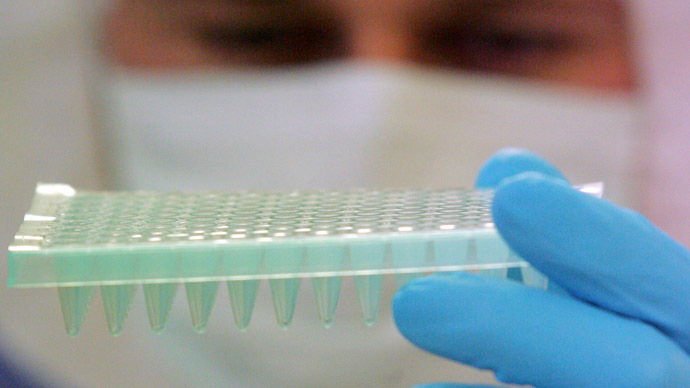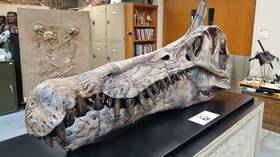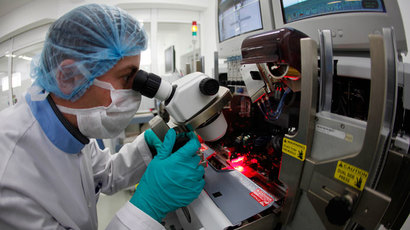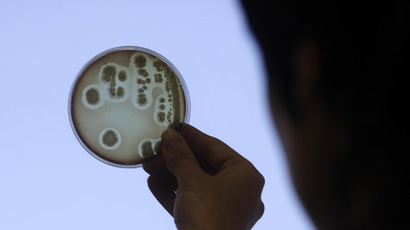100,000 British invited to post their genomes online – in the name of science

A hundred thousand British volunteers could have their genetic information available to anyone in the world. Some scientists warn the Personal Genome Project may be a step too far for confidentiality.
The project is US-based and allows people to find out more about their genetic profiles, plus contribute to advances in medical science. Volunteers from America and Canada have already joined the project.
To participate, people have to be at least 18 years old and understand the risks and benefits when they apply online. They fill out a detailed health history and complete a 19-page consent form.
They will later get their genome analysis and have a four-week "cooling off" period before deciding if they want their data to go online, Reuters reported.
Discovering the role of the genetic code may help to battle complex diseases like cancer, or discover why some people have special traits like perfect musical pitch, according to Stephan Beck, professor of medical genomics at the UCL Cancer Institute and director of the British project.
The project aims to sequence 50 people's genomes, the 3 billion chemical pairings that make up human DNA, in the first year of the project.
The volunteers will be warned of possible implications, as there are a few challenges that the project faces, and the main one is ethical.
The genome gives a person’s entire genetic information, and revealing the data could also disclose the presence of yet undetected illnesses or elevated risks of developing conditions like Alzheimer's.
Another controversy is that an open-access DNA database could
trigger fraudulent use of people’s information.
Scientists are also cautious about the project.
"GeneWatch UK's view is that people should think twice before agreeing to share their genome openly. Remember your DNA contains a unique genetic code which can be used to track you and identify your relatives. Stored online it will be accessible to police, security and border agencies based in any country," Helen Wallace, of GeneWatch British non-profit group specializing in genetics, told The Guardian.
The UK is the first country to join the research which was launched by George Church of Harvard Medical School in 2005. He believes breakthroughs in medicine aren’t possible without “big datasets about individuals and that is what the Personal Genome Project offers."
In the US, Church managed to find 3,000 volunteers for his project, and several hundred more in Canada, of those only 200 genomes have been sequenced.
The scientist also forecast that genome sequencing will speed up as the cost continues to fall dramatically - it has come down from $1 billion 20 years ago to a few thousand dollars nowadays.
A total of 25,000 human genomes were sequenced around the world
in various projects, but just fractions are available to the
public.














